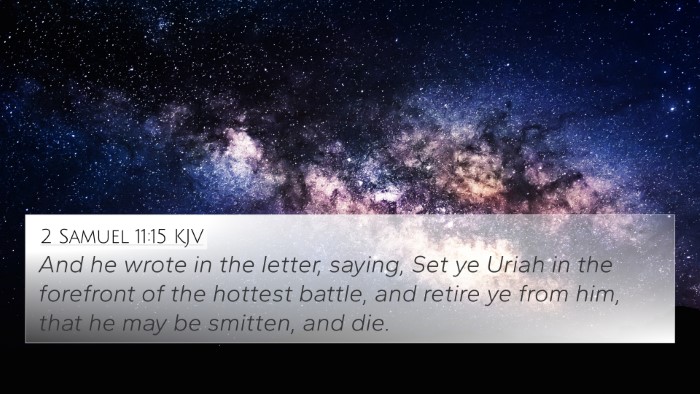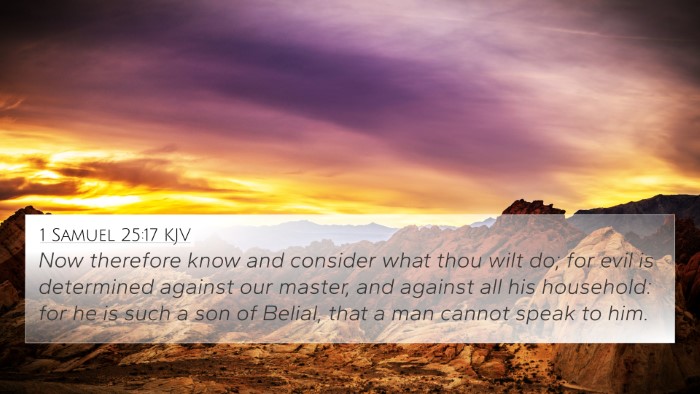This section features a detailed cross-reference designed to enrich your understanding of the Scriptures.
Below, you will find carefully selected verses that echo the themes and teachings related to 2 Samuel 16:7 KJV. Click on any image to explore detailed analyses of related Bible verses and uncover deeper theological insights.
 Deuteronomy 13:13 (KJV) »
Deuteronomy 13:13 (KJV) »
Certain men, the children of Belial, are gone out from among you, and have withdrawn the inhabitants of their city, saying, Let us go and serve other gods, which ye have not known;
 Psalms 5:6 (KJV) »
Psalms 5:6 (KJV) »
Thou shalt destroy them that speak leasing: the LORD will abhor the bloody and deceitful man.
 1 Kings 21:13 (KJV) »
1 Kings 21:13 (KJV) »
And there came in two men, children of Belial, and sat before him: and the men of Belial witnessed against him, even against Naboth, in the presence of the people, saying, Naboth did blaspheme God and the king. Then they carried him forth out of the city, and stoned him with stones, that he died.
 1 Kings 21:10 (KJV) »
1 Kings 21:10 (KJV) »
And set two men, sons of Belial, before him, to bear witness against him, saying, Thou didst blaspheme God and the king. And then carry him out, and stone him, that he may die.
 2 Samuel 12:9 (KJV) »
2 Samuel 12:9 (KJV) »
Wherefore hast thou despised the commandment of the LORD, to do evil in his sight? thou hast killed Uriah the Hittite with the sword, and hast taken his wife to be thy wife, and hast slain him with the sword of the children of Ammon.
 2 Samuel 11:15 (KJV) »
2 Samuel 11:15 (KJV) »
And he wrote in the letter, saying, Set ye Uriah in the forefront of the hottest battle, and retire ye from him, that he may be smitten, and die.
 2 Samuel 3:37 (KJV) »
2 Samuel 3:37 (KJV) »
For all the people and all Israel understood that day that it was not of the king to slay Abner the son of Ner.
 1 Samuel 25:17 (KJV) »
1 Samuel 25:17 (KJV) »
Now therefore know and consider what thou wilt do; for evil is determined against our master, and against all his household: for he is such a son of Belial, that a man cannot speak to him.
 Psalms 51:14 (KJV) »
Psalms 51:14 (KJV) »
Deliver me from bloodguiltiness, O God, thou God of my salvation: and my tongue shall sing aloud of thy righteousness.












